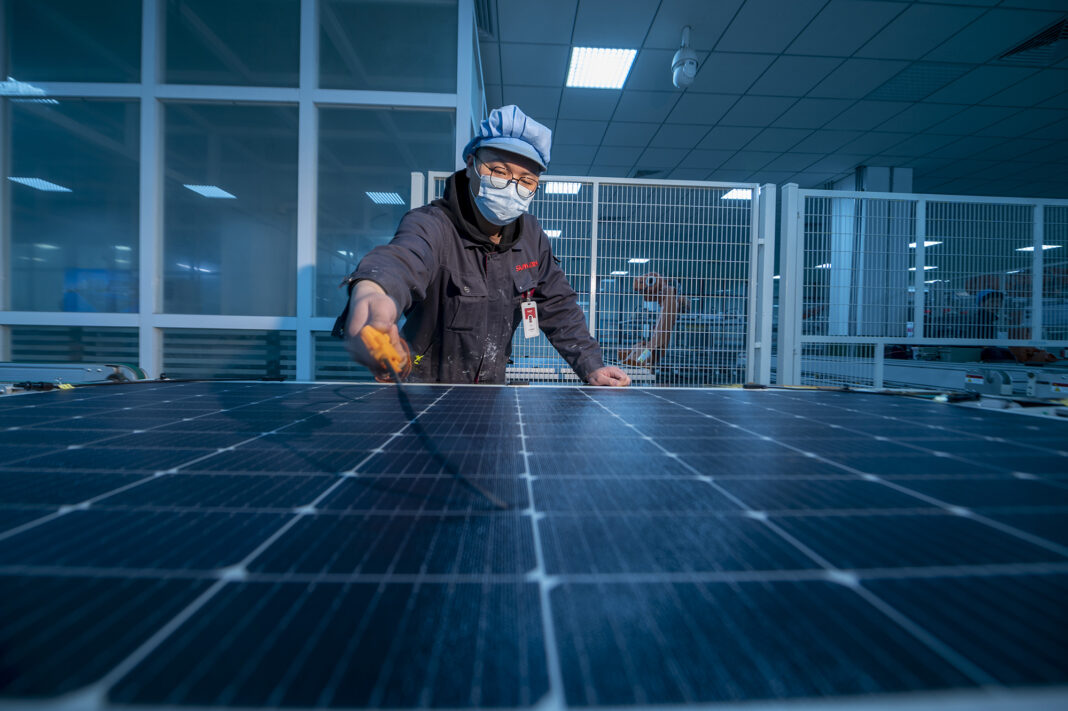The Geopolitics of Oil with Carolyn Kissane
In a recent session of the Winter/Spring 2023 CFR Academic Webinar Series, Carolyn Kissane, an esteemed academic director and clinical professor at New York University’s Center for Global Affairs, offered compelling insights into the changing dynamics of oil geopolitics. With extensive experience in energy and climate issues, Kissane highlighted how the ongoing war in Ukraine and OPEC’s recent production cuts are reshaping global oil security.
The Impact of Russia’s War in Ukraine
Kissane emphasized the dramatic shift in oil geopolitics since Russia’s invasion of Ukraine. As one of the world’s top oil producers, Russia’s actions have led to a significant re-evaluation of energy security among countries worldwide. The geopolitical tension has heightened concerns about dependency on Russian oil, prompting many nations to reconsider their energy strategies. Kissane pointed out that, rather than seeing a decrease in oil demand, many countries are facing an increase, particularly driven by demand from Asia.
Understanding Oil Demand and Supply Dynamics
To illustrate the complexities of global oil demand, Kissane shared statistics indicating that the world consumes over 100 million barrels of oil daily. Surprisingly, instead of a decline, demand continues to rise, especially with China reopening its economy post-COVID. She noted that OPEC’s recent decision to reduce production unexpectedly impacted oil prices, underscoring the interconnectedness of global energy markets. This situation poses challenges for countries grappling with recession and inflation, as rising oil prices directly affect consumer costs.
The Role of OPEC and OPEC+
Kissane explained how OPEC has evolved into OPEC+ with the inclusion of non-OPEC countries like Russia and Mexico, complicating the organization’s traditionally unilateral decision-making. Saudi Arabia remains a leading producer, yet the cutting of production by OPEC+ raises questions about economic strategies, especially in light of existing tight oil supply. The implications of these cuts stretch beyond oil producers, affecting consumers globally, particularly in the U.S., where gasoline prices are closely tied to global oil markets.
China’s Energy Strategy and Russian Oil Imports
China’s strategic choices regarding oil imports also came under scrutiny during the discussion. Kissane highlighted how China has become a significant buyer of discounted Russian oil despite the backdrop of global sanctions. This strategy allows China to build its strategic reserves while simultaneously addressing its growing energy needs. Conversely, India is refining its capability to utilize these discounted imports, illustrating that countries are adapting to the changed oil landscape in various ways.
The Future of Renewable Energy and Decarbonization
The conversation seamlessly transitioned to broader questions of energy transition and decarbonization. Kissane recognized the pressing issues related to climate change and the urgent need to shift towards renewable energy sources. However, she highlighted that oil still plays a critical role in the global energy mix, and projecting when peak demand for oil might occur remains complex. The conversation pointed out that while many developed nations are making strides towards renewable energy, substantial demand for oil persists in developing economies.
The Challenges for African Countries
A significant part of the discussion addressed the challenges facing African nations as they navigate the transition towards renewable energy while grappling with existing reliance on fossil fuels. Kissane noted that while Africa has vast oil reserves, investment in renewable infrastructures is still nascent, making the energy transition more challenging for those nations. This speaks to the broader issues of equity and access to energy resources, calling for a nuanced approach to international energy finance.
Global Energy Security and Geopolitical Tensions
Kissane expressed concerns about looming geopolitical tensions as various nations vie for energy security in an increasingly complex landscape. She underscored the vital need for resilience in energy systems, especially as oil supply tightens. The urgency for comprehensive energy security strategies is more pronounced than ever, given the vulnerabilities in current global supply chains.
Nuclear Energy’s Role in the Future
Finally, the discussion touched upon nuclear energy as a critical component in the transition towards cleaner energy sources. While some countries are embracing nuclear power to mitigate carbon emissions, others remain reticent due to safety concerns. Kissane indicated that nuclear energy might be pivotal for various countries looking to achieve net-zero targets, yet this pursuit will likely encounter differing levels of acceptance worldwide.
Looking Ahead
As the dialogue unfolded, it became crystal clear that the geopolitics of oil involves a complex interplay of international relations, economic strategies, and environmental concerns. With changing alliances and the evolving landscape of energy production and consumption, the future of global oil—and energy security as a whole—remains an intricate puzzle, requiring constant vigilance and adaptability.



